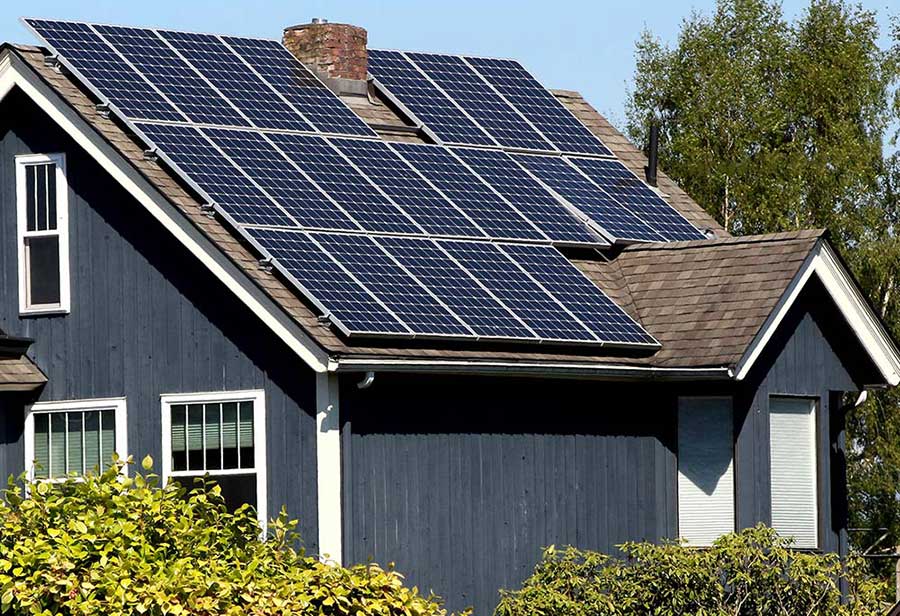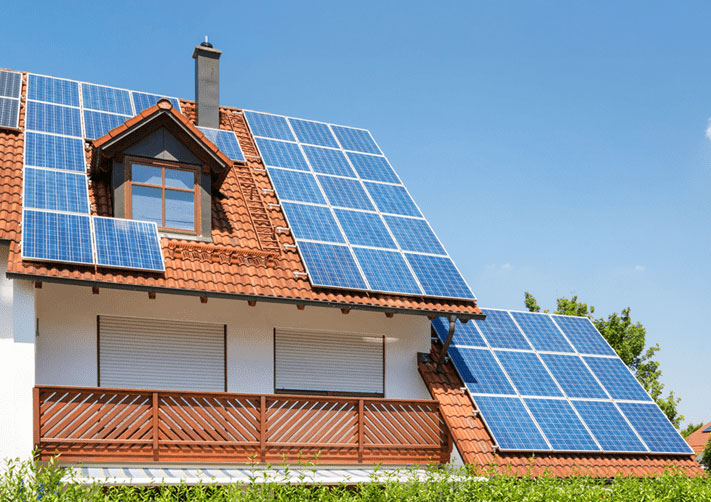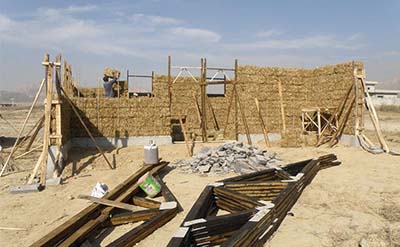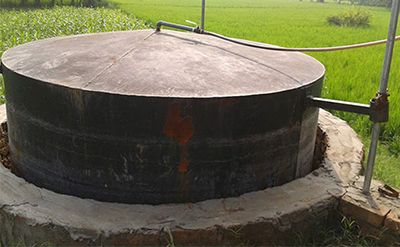Solar Power System
What you need to know?
Solar power is usable energy generated from the sun in the form of electric or thermal energy. Solar energy is captured in a variety of ways, the most common of which is with photovoltaic solar panels that convert the sun’s rays into usable electricity. Aside from using photovoltaics to generate electricity, solar energy is commonly used in thermal applications to heat indoor spaces or fluids. Residential and commercial property owners can install solar hot water systems and design their buildings with passive solar heating in mind to fully take advantage of the sun’s energy with solar technology.

Solar energy is a renewable power source...
Solar energy is a clean, inexpensive, renewable power source that is harnessable nearly everywhere in the world – any point where sunlight hits the surface of the earth is a potential location to generate solar power. And since solar energy comes from the sun, it represents a limitless source of power.

Renewable energy technologies generate electricity from resources that are infinite. Compare, for instance, producing electricity with renewable resources to doing so with fossil fuels. It took hundreds of thousands of years for oil, gas and coal to form, so every time one of those resources are burned to create electricity, that finite resource is moved marginally closer to depletion. Using a renewable resource – such as wind, solar and hydropower – to generate electricity, does not deplete that resource.
There will always be consistent sunlight shining on Earth’s surface, and after turning sunlight into electricity, there is still an infinite amount of sunlight to turn into electricity in the future. That is what makes solar power, by nature, renewable energy.
How does solar energy work?
A solar panel (also known as a solar module) consists of a layer of silicon cells, a metal frame, a glass casing unit, and wiring to transfer electric current from the silicon. Silicon (atomic #14 on the periodic table) is a nonmetal with conductive properties that allow it to absorb and convert sunlight into usable electricity. When light hits a silicon cell, the light causes electrons in the silicon to be set in motion, initiating a flow of electric current. This is known as the “photovoltaic effect,” and it describes the general functionality of solar panel tech. The photovoltaic process works through the following broad steps:
- The silicon photovoltaic solar cell absorbs solar radiation
- When the sun’s rays interact with the silicon cell, electrons begin to move, creating a flow of electric current
- Wires capture and feed this direct current (DC) electricity to a solar inverter to be converted to alternating current (AC) electricity

Benefits Of Using Solar Energy To Power Your Home
Solar power systems offer several benefits to home owners, which is why this alternative power source is gaining more popularity and interest. Installing residential solar panels requires a hefty investment, but the long-term benefits of a solar energy source for your home trump the disadvantages. Find out how homeowners like you benefit from using solar energy to power your home.
- Less Negative Impact on the Environment – Compared to other sources of energy, you are doing the environment right by using solar energy for your home. Traditional power sources are responsible for greenhouse gases, water pollution, and other toxic wastes.
- Reliable Energy Source – Imagine not relying on traditional power sources for electricity – that’s what will happen when you start using solar power at home. You will be generating your electricity through solar panels installed on your roof using the sun’s energy. Non-renewable sources of energy are limited, which explains the high cost of producing electricity.
- Requires Very Little Maintenance – Solar panels are very durable and will last several years without requiring any maintenance. You may need to wash the dirt off from the solar boards a few times each year with a garden hose. You may also hire professionals to do the cleaning for you. But in general, if you live in an area with occasional rain, there is no need to spend on solar panel cleaning and maintenance.
- Increased Home Value – Saving thousands a every year is not the only benefit that you should consider when deciding on investing in residential solar panels. Installing solar panels increase the value of your home in case you are planning to sell your house some day. As a home owner, your goal is to boost the value of your home with repairs and improvements. Solar panels for residential use is a worthy investment that you should prioritize.
What is Solar Power? – External Link
How Do Solar Panels Work? – External Link
What You Need to Know Before Installing Solar Panels on Your Home – External Link
Solar Power System For Home: Ultimate Beginners Guide – Youtube Link
How Many Solar Panels Are Needed To Power A House? – External Link




